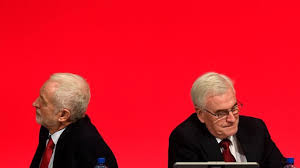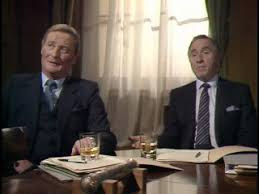After all, in amongst the many things they do badly – being decent, principled or equitable spring to mind – there’s one thing they do exceptionally well. That’s winning and holding on to power. That were in government, mostly alone but sometimes in coalition, for two-thirds of the last century, and they look set, barring accidents, to overtake Labour quite soon in this one.
It wasn’t always so. Between 1846 and 1874, the Conservatives never formed a majority government. But that was the time of one of the most exceptional men every to lead that Party, Benjamin Disraeli.
He had to fight antisemitism and the taint of being on the liberal wing of his Party, but he presided over the conversion of the eighteenth-century Tories into the modern Conservatives with their election-winning machine.
In particular, he played a major role in redefining the role of a party in opposition. Disraeli believed that the goal of the party out of government was to take office at the earliest opportunity. Granting the government easy victories, by voting with it, only made the task harder. The opposition had to oppose.
Getting that lesson across wasn’t easy.
Part of the problem, writes Richard Aldous in the Lion and the Unicorn, his brilliant account of the battles between Disraeli and Gladstone, was Disraeli’s innovation. Rank-and-file Tories in mid-century did more than most to justify the Conservatives’ earlier reputation as the ‘stupid party’. What they failed to grasp, or at least appreciate, was Disraeli’s original approach to opposition. He was perhaps the first political leader to demand that the foremost role of the opposition was to oppose. This may seem obvious now, but it was a novel approach in Victorian Britain. Even his most recent predecessors, Lord John Russell and Sir Robert Peel, had maintained a gentlemanly and statesmanlike detachment in the House, challenging legislation only if they really thought ill of it.
We’re under no obligation to stick with a tradition simply because it is a tradition – Voltaire once wrote that what we call a tradition is just an abuse that we’ve maintained for centuries. On the other hand, if a particular approach works, and the Tories’ record shows how well theirs does, we abandon it at our peril.
Indeed, it should be in the kitbag of any professional politician.
Some people have suggested that I’ve been unfairly critical of John McDonnell this week. He’s the Shadow Chancellor, in other words the opposition politician directly focused on financial policy. And my annoyance was caused by his decision not to oppose the government over tax cuts designed to overwhelmingly benefit the rich rather than the poor.
McDonnell is from the left of the Labour Party. He’s a self-proclaimed socialist. This kind of regressive tax ought to be anathema to him.
But, in any case, simply applying the Disraeli maxim that the opposition’s role is to oppose – as Aldous says, ‘this may seem obvious now’ – meant he had to oppose these cuts.
 |
| If her were in the same league, McDonnell (right) could learn a thing or two from Disraeli |
This is a remarkable position to take. Even an amateur commentator on politics knows that the right-wing press will always publish headlines attacking Labour. Try to accommodate Conservative editors? They’ll just change line of attack whereas you’ll have abandoned a principle. A professional should know that.
McDonnell’s failure to oppose the cuts merely attracted derision from the government front bench. He gave Liz Truss, Chief Secretary to the Treasury, a glorious opportunity to mock him, as Heather Stewart pointed out in the Guardian:
”… even the shadow chancellor has welcomed our tax cuts”. She joked that it’s a “shame his party don’t agree with him … you can almost hear Momentum sharpening their pitchforks”.
She added: “I want him to know that all is not lost. Shadow chancellor, you have friends on this side of the House and there is space for you on our front bench. You might have to sit on the home secretary’s knee.”
In attempting to dodge a bad headline, McDonnell opened himself up to ridicule.
Guess which is more damaging in politics.
Some have asked me what I might have done better. My first answer is that I’m not a politician but, as a literary critic once said on being attacked for not being able to write a book himself, I may not be able to cook but I know when a meal is good. And the one McDonnell cooked certainly isn’t.
My second answer is that I know that I’m an amateur with no experience of executive responsibility in a major party. I know my limitations and I have no illusions about being able to act as Shadow Chancellor, a position to which no one would elect me in any case.
Unfortunately, McDonnell and his party leader Jeremy Corbyn, have as little experience of executive authority as I do. The difference is that they don’t realise it. They don’t admit that they too are amateurs trying to play a game in which Disraeli showed the need for professionalism.
And, boy, does it show.









